A Second “Fall of Man”
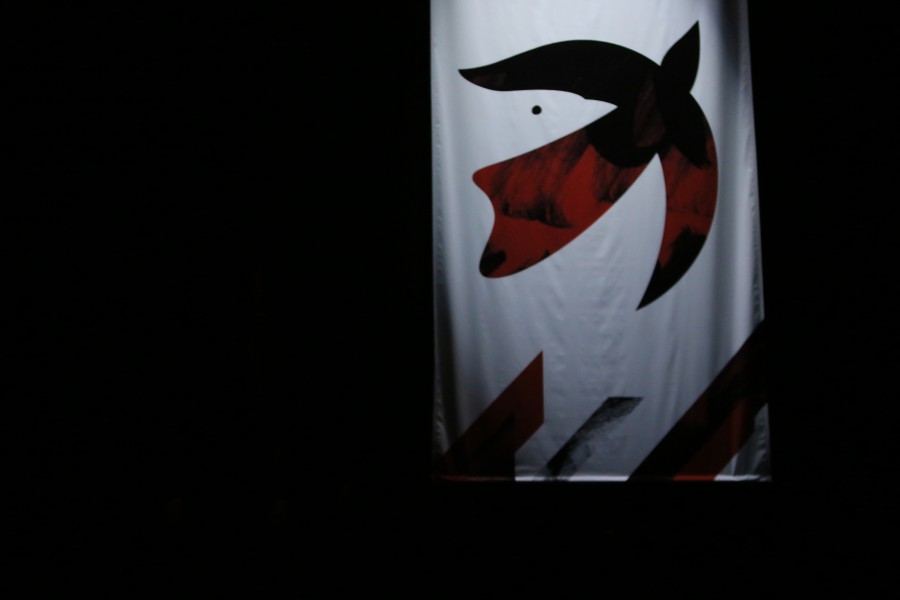
Population growth in the hereafter
It is possible that the population of Russia would be 120 million more than it is today, if the tragic events of the first half of the 20th century, in which 50 to 65 million people perished, had not taken place: so says Dr. of Economics Anatoly Vishnevsky, who is the Director of the Institute of Demographics at the National Research Institute of the School of Higher Economics.
Anatoly Vishnevsky:
“I’d give the main prize for enunciating the revolutionary demographic programme to comrade Kirov. In 1932, when congratulating a crowd of assembled chekists (KGB) upon the 15th anniversary of the creation of the security services, Kirov clearly defined his understanding of the their special role, saying, “we are called to punish, and not only to punish, but to punish “for real”, in such a way that the population of the hereafter is noticeably increased as the result of the activities of the State Political Directorate.”
The results of the Bolsheviks’ activity in this world were no less impressive, demographically speaking. Olga Sedakova notes, that “the Bolshevist terror also had a pedagogical character, which wasn’t aimed at its primary victims, who were but material for frightening everyone else who happened to be fated to be born in the region. Lenin spoke openly about this in his letters from the time of the Red Terror.”
“This war isn’t for life, but for the death of the rich and the parasite hangers-on, the bourgeois intelligentsia…we have to dispatch with them as cleanly as possible… In one place they are thrown in prison, in another they’ll be made to clean toilets, in a third they’ll be issued with yellow tickets the moment their sentence is up, and in a fourth they’ll be shot on the spot. The more variation the better – the richer the overall experience will be…” (V.I. Lenin)*
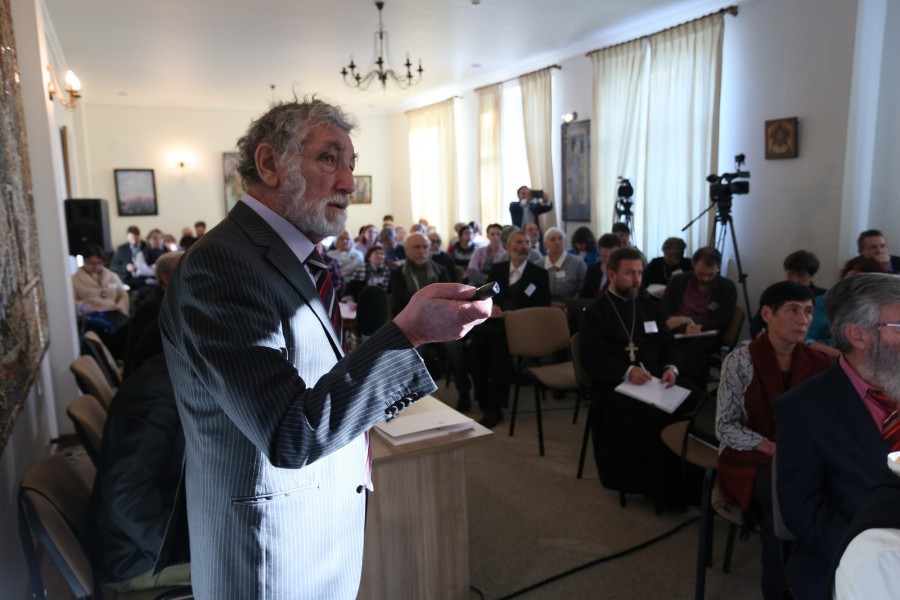
The Deformation of Economics
The Bolsheviks’ seizure of power took a toll on the country’s economic health. “By 1920, the country’s industrial output was one sixth of what it had been in 1914, which is to say that barely anything was left of it. This was a real economic catastrophe – nor was it to be the only one that would befall the nation,” says Dr. of Economics Sergei Smirnov, Deputy Director of the Centre for Development at the National Research Institute of the School of Higher Economics. When the Bolsheviks revoked their politics of wartime communism, the size of the economy recovered over the course of a few years, but then the devastating policies of collectivism and industrialization were brought in. “All of this was done on the basis of the Marxist theory that production itself should develop without any consumer mechanism,” says Smirnov. As such, aside from a direct decrease in production, another result of the October Revolution was an Economics with a seriously deformed structure.
By the 1990’s when that structure came crashing down, it turned out that a significant portion of Soviet production wasn’t needed by anyone – not only in the international marketplace, but even inside the country. From 1990 to 1996 industrial production decreased by 54%. “And this was a new catastrophe for the Russian economy, the background conditions of which were prepared by the Bolsheviks in that fateful year – 1917,” says Smirnov.
Sergei Smirnov:
“For instance, in the 1990s, when the old system came crashing down, one pressing issue was how to provide for the fulfilment of contracts between various enterprises. At that point, it became clear that we had no civilized mechanisms by which to do this. There were two possibilities, either to turn to bandits for help or to become a bandit yourself. Today the situation is somewhat better, but our judicial system still functions poorly, and this is also a result of the revolution of 1917.”
The side effects of the October Revolution also took their toll on the economy. Here Smirnov discusses two main factors: the liquidation of various institutes which provided for the smooth functioning of the economy (in particular the judicial system), and the undermining and destruction of the entrepreneurial spirit, with its drive to bring creative visions and new ideas to fruition, and to do this better than others, while at the same time earning more.

Deformation of the Conscience
A new anthropological phenomenon, so called “revolutionary conscience”, was an even more significant result of the “forging of Soviet Man” by means of “proletarian coercion in all its possible forms, from assassinations to compulsory servitude” (Bukharin). It was as if the spiritual DNA of a person was changed: that which is meant to pain and torment us as we search for meaning in life, to undergo stress in the exercise of making moral valuations and in the discernment of values, both higher and lower…that which is meant to turn a person to that depth from which he makes unrepeatable decisions in the sphere of good and evil – that part became atrophied and was replaced by “revolutionary expedience” and “a sense of revolutionary justice.”
Olga Sedakova:
«Paul Tillich, a 20th c. philosopher, described the three fundamental human anxieties: fear of death, fear of guilt and fear of meaninglessness. Soviet man was relieved of all of these three anxieties. He had no knowledge of personal guilt (after all, he was only carrying out the will of others “like they taught us”). He was forbidden to think about death and, in general his introduction to fear of death would generally take place upon diagnosis of a fatal illness. And meaninglessness? What meaninglessness? Meaning was supplied by the party and its teaching – faithful and invincible.”
Before the beginning of the 1920’s, “revolutionary conscience” was called to form a new system of law to replace the former system, which had been entirely destroyed. New “people’s judges” were to be in charge of the new system: 66% of these people’s judges had a primary education, 10% had a secondary education, 6% had no education whatsoever, and only 7% had a higher education of any sort, reports Professor of History Viktor Kirillov, who teaches at the Russian State Professional Pedagogical Institute. In the period between 1922 and 1929, when the judicial system was being formed, the principles of “revolutionary legality” and “revolutionary expedience” were codified and laid down in various normative documents. It is hard to say which was more horrifying – “revolutionary conscience” or “revolutionary legality”.

The Essence of the Experiment
A demographic swell in the hereafter and economic, cultural and judicial collapse in our own world – these were only faint echoes of a global experiment that the Bolsheviks let loose upon Russia in 1917. The main target of this experiment was Russia’s “human material”. The GULAG was not only an institution which provided slave labour to support the economy but, more importantly, a laboratory for experimentation. One of the most penetrating and perceptive thinkers of the 20th c., pastor and Archimandrite Sergij (Savyolov), who himself spent 5 years in a labour camp, called what happened to our nation at that time a “second fall of man”.
Grigory Gutner, a PhD from the Russian Academy of Sciences who heads the Philosophy Department at St. Philaret’s Institute, explains the goal of the camp system in this way: “a person was to be placed in conditions in which he would be entirely bereft of any spontaneity. The survival situation itself made it impossible for people to do that which they would have considered necessary in life; thereby they are transformed into something that could barely even be termed animal.”
The objects of the experiment were – in equal parts – those who were imprisoned by the system and those who were responsible for running the system of manipulations which were both produced by them and carried out upon them. Under such conditions, the moral measure of a given act disappears completely: man is drawn into a constant routine by the repeated execution of his own function within the machine, and becomes filled with the consciousness of his own “debt” which, as he comes to know it, consists of the proper execution of those functions, alone. These routine, rationally organized procedures, inoculate the person with the thought that we are all just instruments which may be – no must be – used.
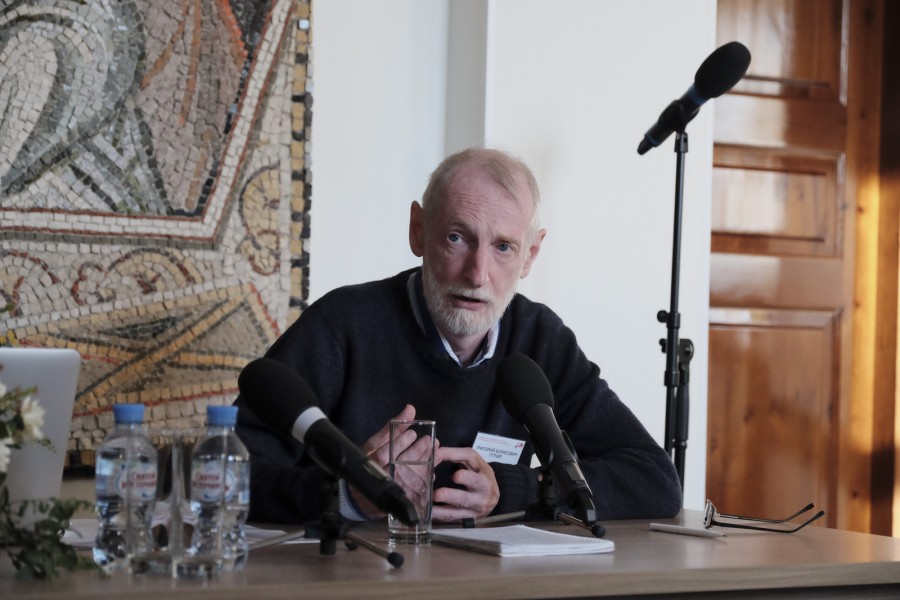
The experiment had far-reaching effects. “The curse of our history is the twisted ethics of slavery,” says Dr. Gennady Burbulis, PhD, who was Russian Secretary of State in 1991 and 1992. Generations were formed – they lived, and live up until this very day as slaves to circumstance – slaves to that lifestyle with which we spoon-fed them. And even when flashes of long-awaited freedom appear, that same old slavery reappears again and again as, in temporary ecstasy, the bearers of the new-found freedom dream not of assuming responsibility for securing and broadening this freedom to include others, but rather of acquiring others as their own slaves.”

Our Fractured History
Dr. Lev Gudkov, PhD, Director of the Yuri Levada Centre for Analysis, believes that, “today one can observe that societal consciousness is repressing not so much the meaning of the October Revolution itself, but more the meaning of the consequences of the establishment of the post-revolutionary regime and its repressive politics.” Collective identity is formed primarily through the institute of the Victory Day holiday, which is understood not as a day of remembrance of tragedy, sacrifice and the suffering of our nation, but more as a symbol of the triumph of Soviet power, to which the growth of Stalin’s popularity in 2012 testifies, as the figure of Lenin, meanwhile, continues to decrease in popular significance. “This rhetoric pushes aside any other context or meaning in connection with the revolution,” believes Gudkov. But perhaps most important, is the loss of understanding that a true fracture in our history occurred in October 1917.
Lev Gudkov:
“Our awareness of the February Revolution and its meaning has been repressed. Only the Soviet understanding remains, with its belief that February was but a prelude to October, although the February Revolution, which was connected with the attempt to build a republic and develop upon general European lines, was really revolution in its truest form. Our people, however, either have a difficult time enunciating the meaning of the February revolution or simply know nothing about it.”
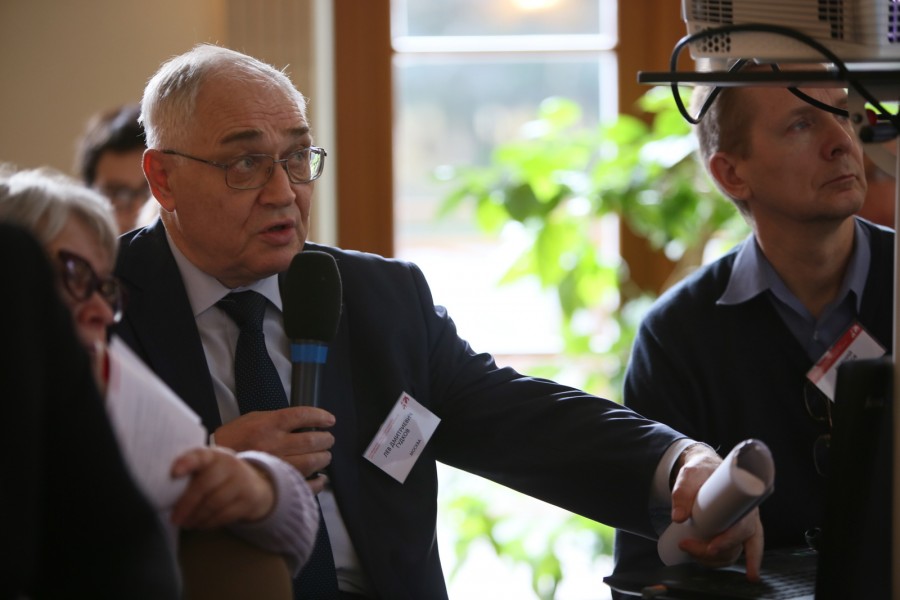
Historian Dr. Konstantin Morozov, a Professor at the Russian Presidential Academy of National Economy and Public Administration and at the Moscow School of Social and Economic Sciences, believes that “the discipline of History has been artificially placed in a cultural ghetto – there is a general tendency to leave everything in the realm of scientific discussion.” At the same time, the press has no culture of dialogue, and the pronouncements of historians, more often than not, are put into contexts in which their original meanings are distorted. Dr. Morozov is also the Chairman of the Memorial Research Centre and a member of board of the Society of Independent Historians.
Konstantin Morozov:
“Societal demand for historical objectivity about the past swelled toward the end of the 1980s, but historians were unable to meet the demand at that time. By the middle of the 1990s, when access to archives on the civil war, the repressions, etc, became available, the Russian people were busy trying to survive and “reconsidered” their demand for knowledge, preferring, rather, to keep the horrors of the past in the past.”
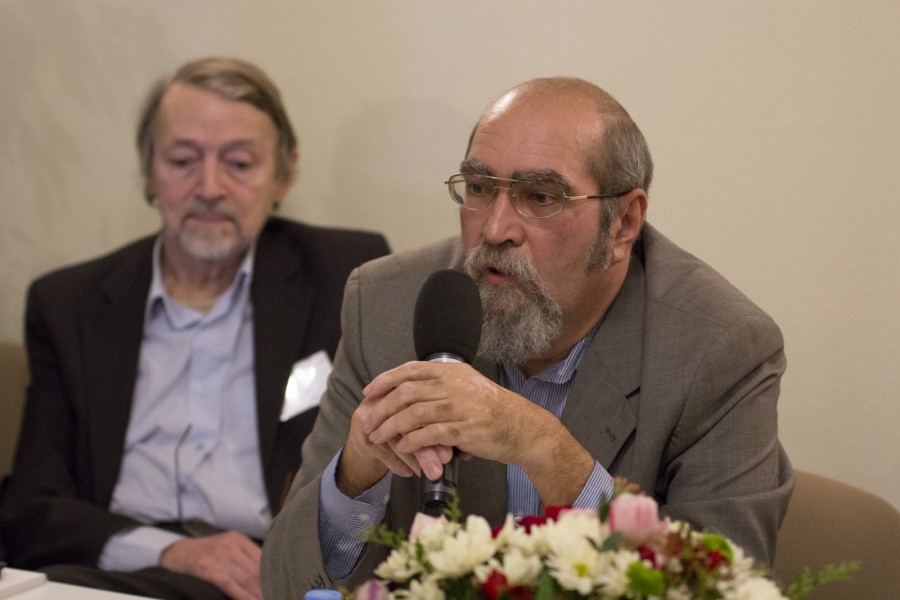
The deep reasons for today’s spiritual and historical anamnesis were already forged 100 years ago, believes theologian Fr. Georgy Kochetkov, Rector of St. Philaret’s Institute. “The Bolsheviks tried so fiercely to irradiate all the national and cultural characteristics of the various nations of the USSR – and particularly of the Russian people – that people simply forgot who they were,” says Fr. Georgy. Of the former country, only traces or islands were left extant – the same goes for the church and for the Russian nation. Today it’s considered normal to say that we live in a multinational and multi-confessional country. Many other countries could say the same, but they don’t take the time to specially position themselves in such a way. For instance, in France people aren’t afraid to say that French people live there, and in Poland, Polish people. But for us in Russia to say that Russians live here – it violates our sensitivities.”
Just as the Bolsheviks reversed the course of rivers, they changed the course not only of Russian history, but of all world Christendom, delivering a direct blow to achievements – hard-won by mankind over many centuries – which were aimed at extricating the human person from the squalor of evil and sin. Banners reading “the kingdom of workers and peasants shall have no end”, were but a cynical paraphrase of the Nicene Creed, perpetuating not only the quasi-religious character of Bolshevism, but also its particular anti-church stance.
“If the Bolsheviks hadn’t come to power in Russia, we would be living in an entirely different spiritual, intellectual, cultural, economic and political space. It would be a different world,” believes Fr. Georgy. The 20th c. stands beneath the banner of the battle between two civilizations, and the events of 1917 determined the defeat of the best cultural trends, the bearers of which were Russia, Germany and Austria, as the world entered the 1st World War.
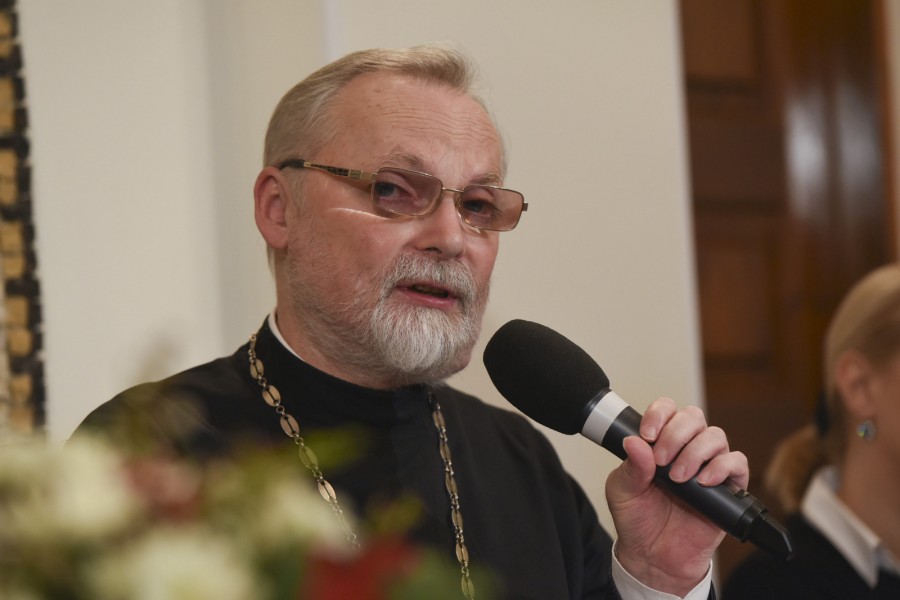
“The events of 100 years ago affected the entire world and continue to form it in a significant way,” says Yves Rossie, the Swiss Ambassador to Russia. “And work in connection with the memory and understanding of what took place not only in 1917 but also in the years to follow, is an ongoing process and far from complete.”
Yves Rossie:
“In contrast to the French Revolution, in relation to which we can’t be acquainted with the participants, we were acquainted with the people who gave their lives to revolution in the 20th c. – they were our grandfathers and great grandfathers. And there are two levels on which we can relate to the revolutionary events: we can relate to them either on the level of historical research or on the level of how it affected our society. How does society relate to the acts of their own fathers and grandfathers? This is the personal level, the second level…how a person relates to the events of his own past…the events of history can be painful for a person and for his loved ones. But any person is able to tell the difference between good and evil. And repentance, in this sense, isn’t a religious matter, but simply a matter of human existence.”
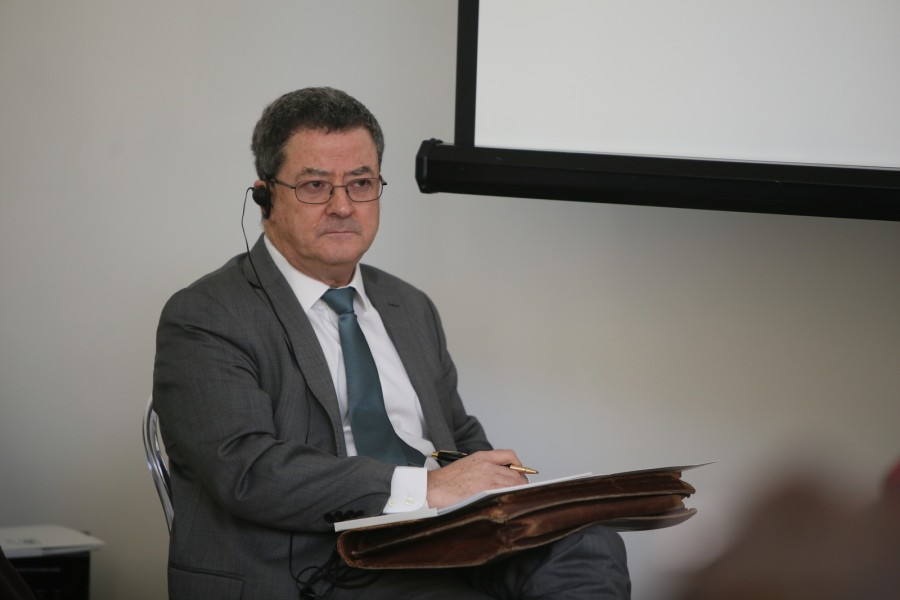
So how do we begin to put things right?
Many experts believe that if Russia is to seriously and peacefully discuss and work through the consequences of October 1917, the basis for a constructive discussion has to be societal repentance.
“In German academic circles, with which I am well acquainted, there are no fascists. There are only antifascists, who are ready to spit the moment they hear Hitler’s name pronounced,” says Professor Theodore Shanin, President of the Moscow School of Higher Social and Economic Sciences. “I think that Russia is now also beginning such a process of repentance, but has yet to go nearly as deep as the Germans have already gone. And, despite the fact that the depth of German repentance is still insufficient, I believe that we need to learn the sort of depth that is required from their example, which has managed, at least, to uproot and stamp out Nazism amongst the older generation.”
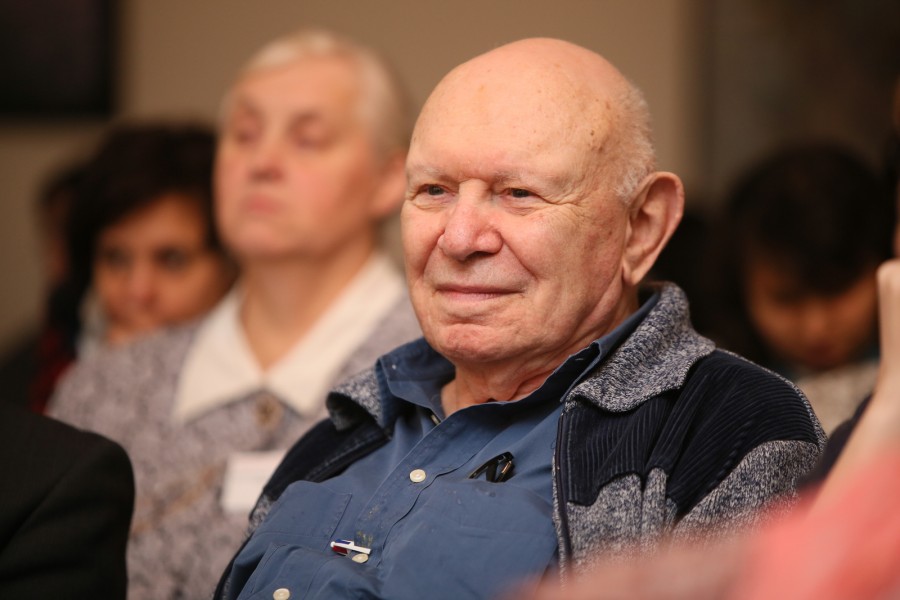
Gennady Burbulis:
“The anniversary will pass, but the pain, tragedy and necessity of bearing responsibility for what has happened – the demand for repentance and cleansing – will remain with us forever. If people relate to this today lazily and indifferently or continue to naively and fond-heartedly consider the events of the revolution to be in some way “great”, we can only feel for these people and hope that sooner or later they will open their hearts, look deeply into these events and gain freedom through the pain of that “wound that cannot heal” in their own hearts.”
“In order to get past the consequences of the revolution and the anthropological catastrophe, we need to find the strength within ourselves to feel the pain of all who were involved, to cry for all the losses, and to call all to repentance on behalf of everyone involved,” says Fr. Georgy Kochetkov.
Konstantin Morozov:
“The Bolsheviks attempts to act upon society by means of emergency measures led to the disintegration of society’s tissue. It is of the utmost importance today, that we work to reconnect the people of this now-atomized former society.”
And however might we achieve this?
The 20th century represented a ripping apart and debilitation of the Russian land, the Russian person, and the nation as a whole. “The losses are devastating, there are gaping holes everywhere. Some things are simply impossible to regenerate; some things we might like to restore are impossible to return,” says Fr. Georgy Kochetkov. But most of all the human person and human relationships have suffered. The human person truly became a product of mass production, individualization, subject to the instincts of lower animals. We’ve become weak and have lost our human faces. We are ill and infected with sick ideology.”
Fr. Georgy Kochetkov:
“We are the most injured nation in the world – bodily, spiritually and psychologically. We are walking on bones. Tens of millions of victims cry out to the heavens – whether we like it or not and whether we have the appetite to avenge their loss or not – their blood nevertheless continues to call out to God. You can forgive the murderers of your fathers and grandfathers, but it is impossible to forgive the murder of 65 million people. But God can forgive them, and we strive to unite ourselves with God’s action in this matter.”
But on top of this, the 20th c. revealed to us new paths to holiness and spiritual warfare, innovations in sobornost and in development of the human person, which are in many ways connected to the end, albeit bloody, of the Constantinopolitan Era of Church History. “Existential depths of which the 18th and 19th century simply could not be aware were, nevertheless, acquired during the 20th century,” believes Fr. Georgy. Within the church, something entirely new has been revealed, and when we speak of sobornost today we are working not only on the experience and teaching of Khomyakov and Berdyaev, but also upon the experience of the new martyrs and confessors, as well as on the experience of the brotherhoods of the 20th century. And here, the Russian church has something to say to the whole world, even though we ourselves haven’t entirely assimilated the experience, as is witnessed by contemporary official church teaching with its extreme clericalist bent, in which there is little room for Christian persons or for sobornost as fellowship in true Christian community.”
As Grigory Gutner notes, although the great experiment in dehumanization was carried out step-by-step and methodically, even the concentration camps couldn’t produce a completely deterministic human being. There is always “something or other” within man that protests against such a result. This “something or other” is the main interest of another “laboratory”, which in parallel with the GULAG was active outside the borders of Russia itself. That other laboratory was called “An Orthodox Affair” (Pravoslavnoye Delo). This “laboratory for the future of Russia” was the brainchild of new martyr Mother Maria Skobtsova. This saint, who doesn’t fit easily into the pattern of monasticism as earlier understood, discerned the charisma of Russian culture and its particularly acute sense of the second commandment to love your neighbour as yourself, which was popularized in the form of Dosteyevsky’s idea that “each is guilty before all, for everyone and for everything.” In this particular spiritual experience, which was kept and guarded by those in the exile of the Russian emigration such as Mother Maria herself, Nikolay Berdyaev, Sergei Bulgakov and the other participants of Pravoslavnoye Delo, who patiently looked forward to the rebirth of Russia, it is possible to find the key to the restoration of a healthy, non-revolutionary conscience for our nation, believes Lydia Kroshkina, a specialist in the heritage of the Russian emigration. (SFI/RGGU).
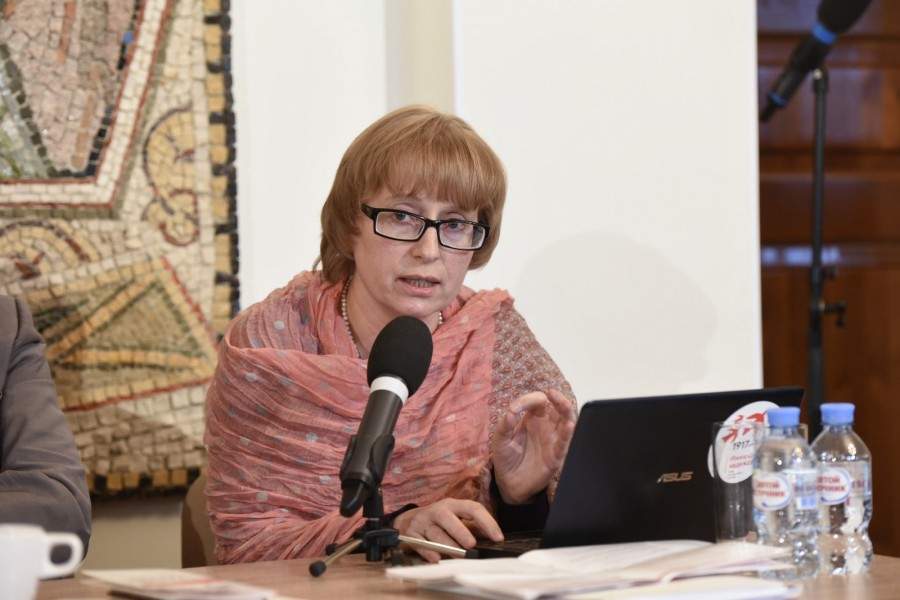
“It is impossible to heal and resurrect Russia by political means alone…the Russian people need to experience a spiritual rebirth. But the Russian nation mustn’t remain in that loneliness to which it has been relegated by the catastrophe it has endured. It is for all of Christendom to begin to come together in all possible positive, spiritual, Christian energies… I hope that sooner or later a “holy union” of all creative Christian energies will arise – a union of all who remain faithful to that which is eternally holy. This union will begin with repentance and the forgiveness of sins, for which very purpose terrible trials are suffered upon us.” (N.A. Berdyaev).
All the best and highest spiritual achievements of the 20th c. – both those forged in the persecuted church here in Russia and those revealed in the “laboratory for Russia’s future” abroad – bear witness in a single voice to the fact that the very meaning of the term “repentance” needs to be reconsidered. Within that term we need to envisage not only the naming of and redemption for the guilt of our forefathers, but also the renewed acquisition of lost and destroyed national values – including even those which were lacking in the past, so as to prevent further tragedy being wreaked upon the Russian land and her people. As Averintsev wrote, to understand that our guilt “is not only in that we have at some point committed a terrible sin or broken various rules but that we are not who we are meant to be” – to enunciate the saving gift of “universal empathy” and once again reintroduce a sense of “reciprocal guilt” – is the only path to the restoration of that link once lost, to our shared common fate…with those on both sides of the GULAG’s barbed wire fences.
Chairman of the Transfiguration Brotherhood and Vice Rector of SFI Dmitry Gasak states, “it is important to have a sober understanding who the Bolsheviks were. But it is even more important to understand who we are in relationship to them. It isn’t by chance that Mikhail Bulgakov puts that question to Professor Preobrazhensky in his work, A Dog’s Heart. Who is he in relation to Sharikov? Who are we? For what and for whom are we responsible?”
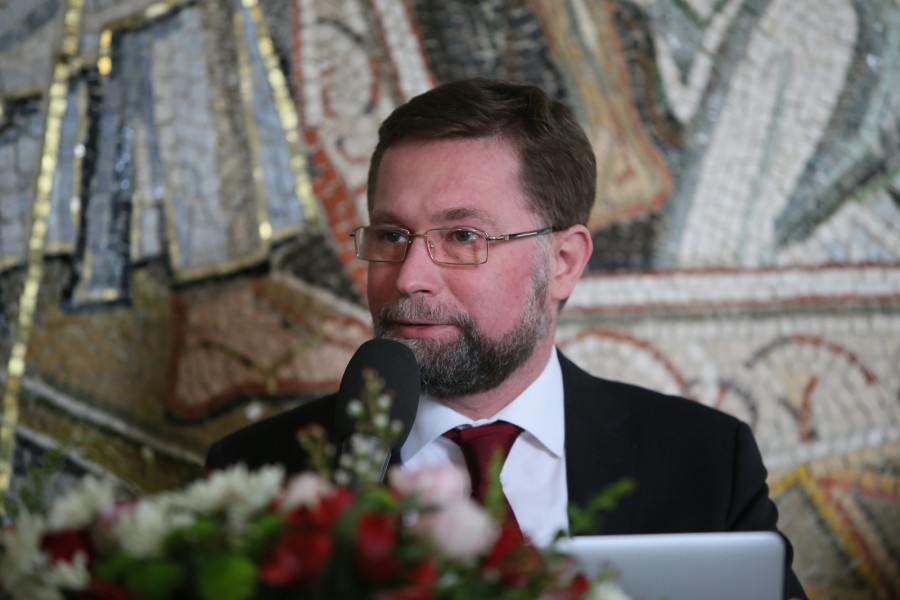
“If we were all better people, than he, too (the criminal) would be better, and wouldn’t be standing here before us… we are half guilty in his crime,” wrote Dostoyevsky in his Diary, as if he could foresee our hopeless and debilitated post-Soviet reality. It is in this context in particular that we have to speak out truth and call evil by its name; but at the same time, we have to accept half of the weight of the sentence upon ourselves. We need to go into the judge’s chambers already with the thought that we are guilty. This is the pain of the soul which everyone is so afraod of these days – that punishment with which we will exit the judge’s chambers. But if this pain is real and strong, then it will also cleanse us and make us better people.”
We are accustomed to considering the development of mass culture and the assimilation of the human person into this culture, e.g. “the revolt of the masses” and the triumph of pop culture, the growth of individualism and the estrangement of the person, as a worldwide process having its own course, which is determined by the development of technologies, including information technology. But is this course not in part pre-determined by the spirits unleashed in 1917 and our own fatalistic submission to them? Is it possible for creative forces to make inroads into history after this spiritual default of humanity? Can there be found among today’s population, people who recognize themselves as free, conscience-filled and thoughtful, and who are willing to take “half of the burden of the sentence” upon themselves, serving the cultivation of freedom in others and thereby demonstrating a higher road – the only possible true historical form of aristocracy?
Sofia Androsenko
Photo: Alexander Volkov, Alyona Kaplina, Evgeny Gurko, Dmitry Pisarev
*Lenin, V.I. Full collected works, V35, pages. 200, 201, 204. From his work “How to organize competition”.
** Berdyaev N.A., The Fate of Russia (1918).